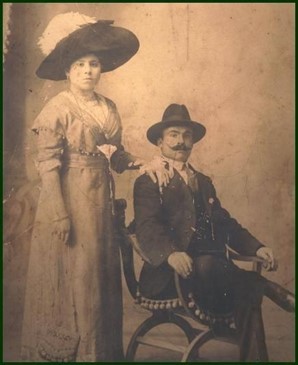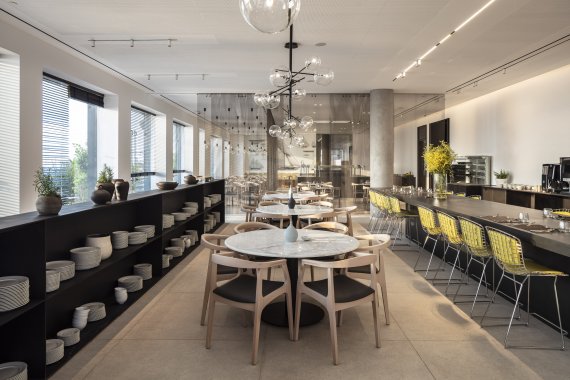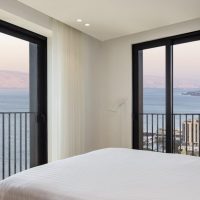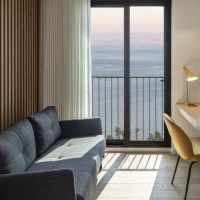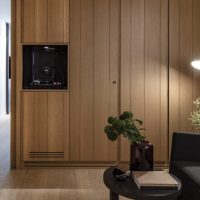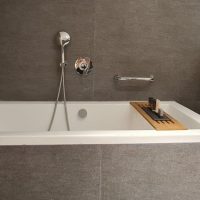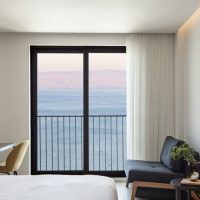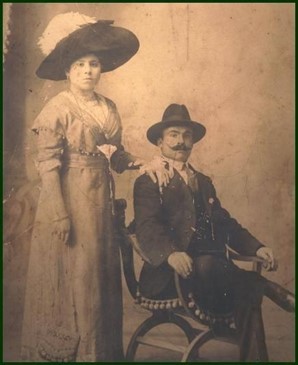
El Hotel Sofía Mar de Galilea fue construido a imagen y semejanza de Sofía Srugo.
La historia internacional de la madre del propietario del hotel, Rubén Srugo, comenzó en 1916, en la ciudad de Damasco.
El destino era Argentina, a donde Sofía viajó para encontrarse con su futuro esposo, a quien no conocía. En su camino, pasó por Tiberíades y decidió prolongar su estadía en el lugar y sus alrededores.
En sus memorias, ella se aseguró de mencionar con cariño la histórica casa de piedra, ya que durante el período otomano fue utilizada como un edificio gubernamental donde funcionarios, comerciantes y ciudadanos de Siria, Líbano y Jordania hacían firmar sus credenciales de viaje, y donde se celebraron eventos públicos históricos en la ciudad.

